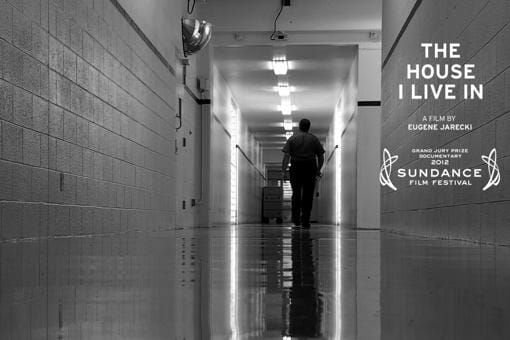By Natalia Lusinski · February 14, 2012

Eugene Jarecki’s The House I Live In portrays today’s “War on Drugs” in America, which, apparently, we are still desperately losing. With research validated by first-hand accounts – everyone from dealers to those who lock them up to The Wire's David Simon (an ex-police reporter who often covered the crime beat and proves to be an extremely resourceful part of this documentary) – we see that millions of people, users and sellers, are getting put behind bars, the crime often not befitting of the punishment.
One example is a man who is in prison for life for selling a small amount of crystal meth (after dire financial circumstances led him to doing so in the first place). Due to the state this happened in, he has no chance of living outside of bars again – unless the laws change. However, people who have committed more dangerous crimes are eligible for parole. The ways these laws vary from state-to-state, which Jarecki gives us a taste of, is fascinating while also appalling. Another such noteworthy situation is a judge disagreeing with his state’s minimum sentencing law and wanting to give someone a lesser sentence but not being allowed to, legally.
Jarecki also shows us who is being arrested: that lower-class citizens and African-Americans seem to be imprisoned more often than other races, something that invites further investigation.
Early on in the documentary, Jarecki introduces Nannie Jeter, who was his childhood nanny and a big part of Jarecki’s development. Her losing a son to drugs helps lure us into the film, emotionally. However, the doc is so thorough that it is easy to get lost and overwhelmed amidst all the statistics. I would have preferred getting more involved in the personal stories of the people Jarecki introduces – like the female drug dealer or the crystal meth prisoner – to see how exactly they got where they are, to understand their mindsets more. Their reasons are mentioned but not embellished upon.
However, that said, I know the film’s focus is the aftermath and consequences of getting caught with drugs, not prevention, though I feel the former would have be a compelling element to add to the film while lessening the heavier statistical side. (As someone who volunteered with prisoners for years, I think it is easier to be sympathetic once you get to know them as people first.)
In the documentary, we see that the “War on Drugs” is not one in which we are winning, so how can it be fought to exhibit lasting change? Hopefully, Jarecki’s film will help open people’s eyes.
“The House I Live In” won the Grand Jury Prize for U.S. Documentary at Sundance.